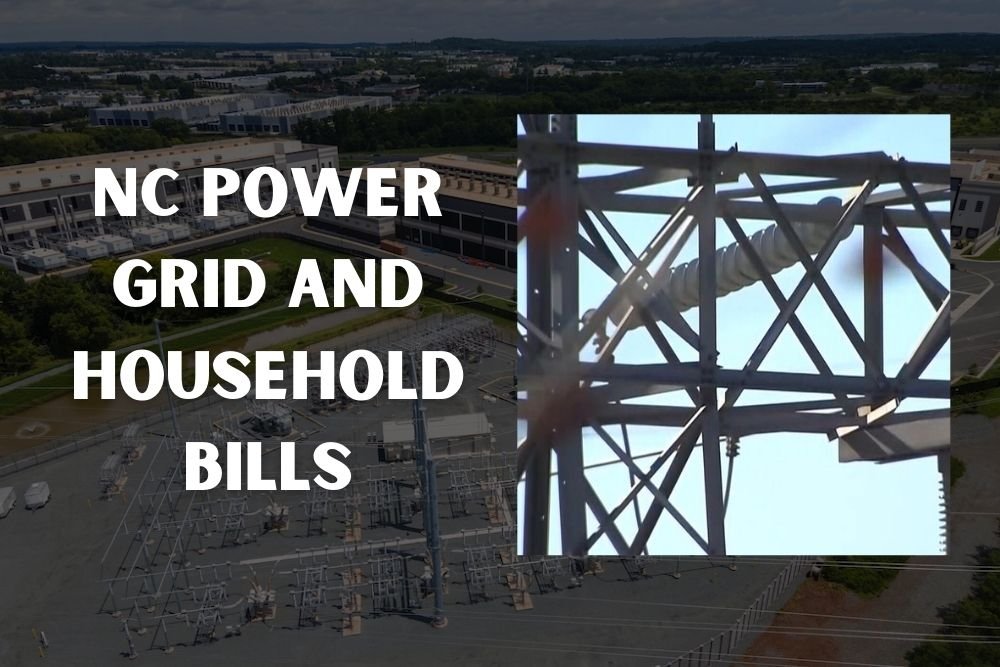New Data Centers Could Strain NC Power Grid and Raise Household Bills
TARBORO, N.C. — Communities across North Carolina are wrestling with the promise and peril of new data centers, which bring jobs and tax revenue but also raise serious concerns about electricity demand, climate impacts, and higher household bills.
A Rejected Proposal in Tarboro
This month, the Tarboro Town Council rejected plans for a 50-acre, $6.4 billion data center, despite its pledge of 500 jobs and millions in tax revenue. Residents worried about water use, noise, and whether the project was truly sustainable.
Senate Bill 266: Who Pays the Power Bill?
Concerns deepened after lawmakers passed Senate Bill 266, the Power Bill Reduction Act, which shifts how Duke Energy and other utilities allocate costs.
Under the law, large commercial users like data centers will pay less for purchased power and fuel, while households will pay more. Analysts warn this could push millions of dollars in added costs onto residential customers every year.
Data Centers Use Power Like Cities
A single 300-megawatt data center can consume as much electricity as 30,000 homes, according to energy experts. Some facilities rival the output of the state’s largest power plants, raising questions about whether utilities will lean on fossil fuels, nuclear, or renewable sources to meet demand.
“Some of these facilities are as large as our biggest power plants,” said John Gajda, an engineering professor at NC State. “That’s unprecedented.”
Local Impacts and Climate Risks
Communities near projects like the New Hill Digital Campus outside Apex are raising alarms about noise, traffic, and water needs.
Experts also warn utilities might overbuild fossil fuel plants in anticipation of demand that may never fully materialize, saddling existing customers with the costs and locking in higher emissions.
Searching for Balance
Some policy experts suggest creating a separate customer class for data centers, ensuring they bear more of the costs. Others argue these companies — among the wealthiest in the world — should be pushed to build their own clean energy resources.
Still, proponents highlight benefits like jobs, local tax revenue, and potential grid efficiencies.
“There’s no all-good-news or all-bad-news story here,” Gajda said. “It’s a balance.”
Do you think North Carolina households should subsidize the power needs of big tech data centers, or should companies pay the full costs? Share your thoughts with us at SaludaStandard-Sentinel.com.







